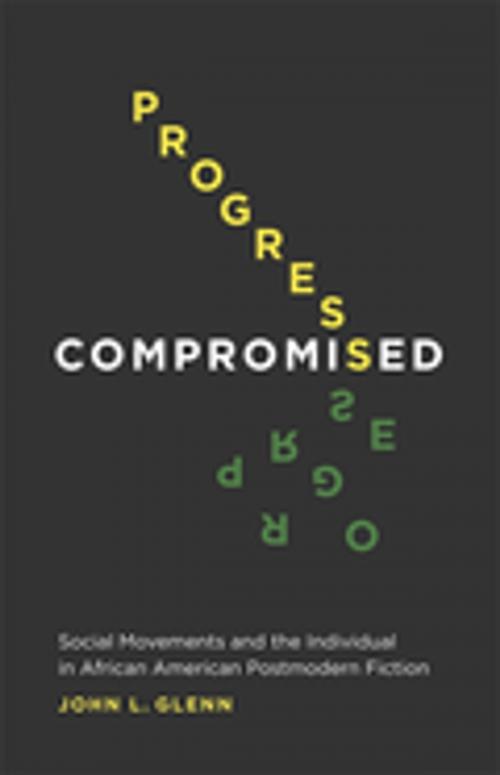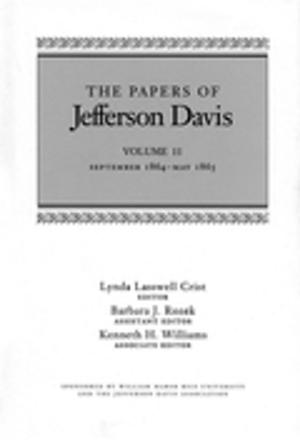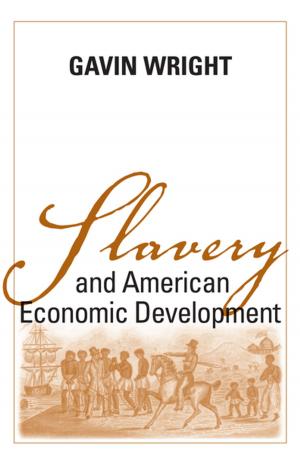Progress Compromised
Social Movements and the Individual in African American Postmodern Fiction
Fiction & Literature, Literary Theory & Criticism, Black, American, Nonfiction, History, Americas, United States, 20th Century| Author: | John Glenn | ISBN: | 9780807169933 |
| Publisher: | LSU Press | Publication: | December 10, 2018 |
| Imprint: | LSU Press | Language: | English |
| Author: | John Glenn |
| ISBN: | 9780807169933 |
| Publisher: | LSU Press |
| Publication: | December 10, 2018 |
| Imprint: | LSU Press |
| Language: | English |
In Progress Compromised, John L. Glenn examines how African American literature engages in debates about the political and cultural tensions prompted by black social movements during the 1950s and 1960s. Glenn presents detailed case studies of four major novels that illuminate specific periods crucial in the history of African American political struggles, including campaigns for racial integration, the zenith of the civil rights movement, black nationalism, and the immediate legacy of the civil rights era. His analysis provides a nuanced understanding of black postmodern culture and shows how writers use fiction to postulate new modes of resistance and selfhood that defy societal constraints.
In Colson Whitehead’s The Intuitionist, the first black female elevator inspector and her male counterparts reconsider their notions of what progress means for African Americans newly integrated into civil service and mass industry. Alice Walker’s Meridian observes the novel’s title character as she copes with the psychological distress experienced by activists participating in the civil rights movement, emphasizing how they bear the psychic and emotional weight of their struggle for equality. John Oliver Killens’s satire The Cotillion; or, One Good Bull Is Half the Herd considers class stratification among black communities and social organizations by following the protagonists as they expose the biases of a society women’s group, set against a backdrop of late-1960s black nationalism. Finally, Toni Morrison’s Tar Baby concerns members of the post–civil rights generation who struggle to achieve self-renewal through introspection while confronting unresolved issues about racial identity and socioeconomic mobility.
Progress Compromised showcases the discourse on black cultural politics circulating within late-twentieth-century African American literature, revealing how postmodern fiction investigates the effects of historical movements on individuals, their respective communities, and their efforts to resist social conformity and retain personal identity.
In Progress Compromised, John L. Glenn examines how African American literature engages in debates about the political and cultural tensions prompted by black social movements during the 1950s and 1960s. Glenn presents detailed case studies of four major novels that illuminate specific periods crucial in the history of African American political struggles, including campaigns for racial integration, the zenith of the civil rights movement, black nationalism, and the immediate legacy of the civil rights era. His analysis provides a nuanced understanding of black postmodern culture and shows how writers use fiction to postulate new modes of resistance and selfhood that defy societal constraints.
In Colson Whitehead’s The Intuitionist, the first black female elevator inspector and her male counterparts reconsider their notions of what progress means for African Americans newly integrated into civil service and mass industry. Alice Walker’s Meridian observes the novel’s title character as she copes with the psychological distress experienced by activists participating in the civil rights movement, emphasizing how they bear the psychic and emotional weight of their struggle for equality. John Oliver Killens’s satire The Cotillion; or, One Good Bull Is Half the Herd considers class stratification among black communities and social organizations by following the protagonists as they expose the biases of a society women’s group, set against a backdrop of late-1960s black nationalism. Finally, Toni Morrison’s Tar Baby concerns members of the post–civil rights generation who struggle to achieve self-renewal through introspection while confronting unresolved issues about racial identity and socioeconomic mobility.
Progress Compromised showcases the discourse on black cultural politics circulating within late-twentieth-century African American literature, revealing how postmodern fiction investigates the effects of historical movements on individuals, their respective communities, and their efforts to resist social conformity and retain personal identity.















